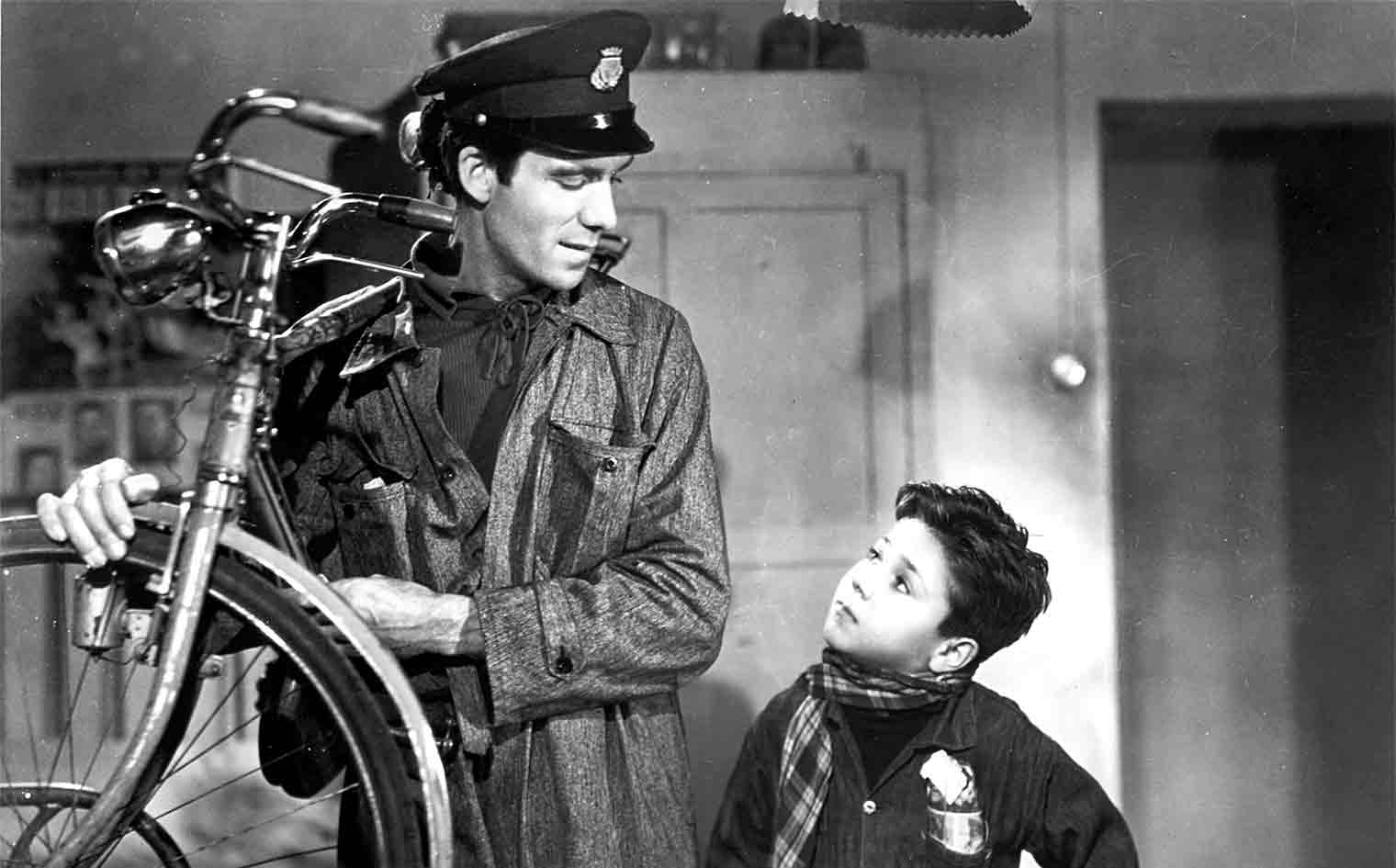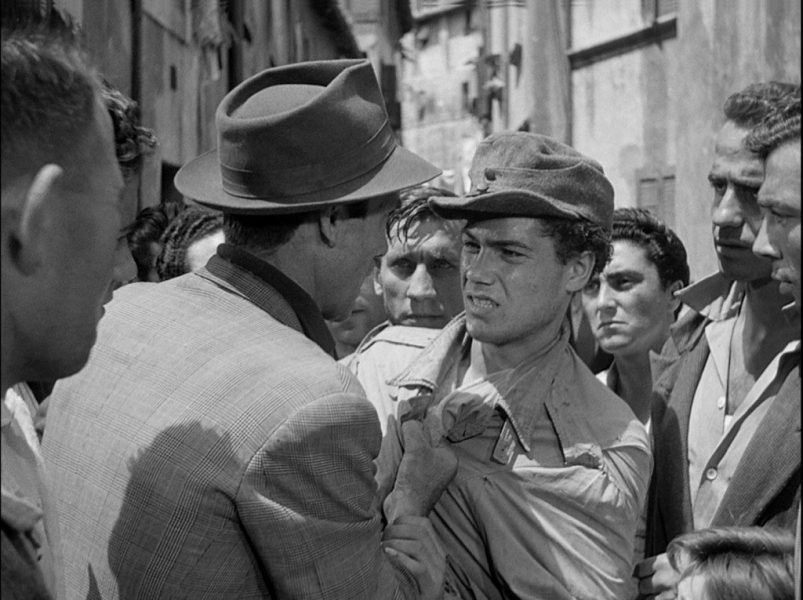‘Bicycle Thieves’ (1948) can’t possibly be described as just a movie. It is so much more than that. Regarded as one of the finest films of all time, it could very well be categorized as a human document, a document that transcends time and space. Vittorio De Sica’s neorealist take on everyday life left such indelible a mark that the internationally acclaimed Indian auteur Satyajit Ray once said about the movie, “BT is a triumphant discovery of the fundamentals of cinema and De Sica has openly acknowledged his debt to Chaplin”. Loosely based on a novel of the same name by Luigi Bartolini, the screenplay of the movie was written by Cesare Zavattini.
The rather simple narrative structure and the everyday emotions portrayed provide the perfect fodder for a complete cinematic experience even for the uninitiated souls. From a frontal perspective, the movie seems to deal with poverty and unemployment in Italy at the end of the Second World War. However, the movie is also a subtle representation of the eternal struggle that the working class has to undergo every single day. It is the tale of a man and his son trying to recover their stolen bicycle without which the man would lose a job that promises to take his family out of poverty. The movie was so well received that it bagged an Academy Honorary Award two years after its release.
The movie begins with the protagonist landing a job in Rome at the behest of the local unemployment office. The job is that of a poster-hanger that necessitates a bicycle. However, much to his despair, he has already pawned his bicycle. When his wife gets to know this episode, she pawns their wedding bedcovers to recover just enough dough to reclaim the bicycle. The scene involving a man climbing a tall stair to reach atop a huge wall of shelves stacked with bedcovers perfectly symbolizes the economic crisis that Italy had plunged into at that point in time. Both the husband and the wife come back from the pawn shop with refurbished hopes for a better life.
The bicycle is stolen the next day while the protagonist is busy on his new assignment and he is subsequently shown to be distraught. The following scenes in the movie focus on the trials and tribulations faced by the man and his resolute son in order to recover the bicycle. Lamberto Maggiorani, who was a factory worker and had never worked in a film prior to ‘Bicycle Thieves’ almost plays himself. With all the contemporary hoopla around Method Acting and its obvious advantages, it is astonishing to see how a person can play the role he is best suited to play – that of himself. In an act that garnered near-universal acclaim; Maggiorani makes us laugh, he makes us cry and he makes us feel helpless as well. We invariably start looking at the world from his perspective and thus we become invisible partners in his quest. The rendezvous of the protagonist, named Ricci in the movie, and his son Bruno while trying to recover the bicycle forms the crux of the rest of the movie.
In an unsympathetic and crude world, the duo is left stranded in the urban wilderness that is Rome. The storyline, while being deceivingly simple, has more nuances to it than one would like to believe after the first viewing. The tale could very easily be interpreted as a metaphor to signify the deep scars that a war invariably leaves on mankind. However, the movie is also representative of oppression, severe inequity in distribution and human fallibility.
Ricci and Bruno try to brush aside their misfortune in a sudden moment of triumph when they decide to eat at a costly restaurant. However, the sight of a rich family at another table compels them to begin their quest all over again. While critics in Italy were initially dismissive of the movie’s overt socialist orientation, opinions were overwhelmingly positive across other parts of the globe. Bruno, played by Enzo Staiola, is a stark rejoinder of what poverty does to childhood. While he represents everything that is quintessentially childlike, there is something about him that makes him more than just a child. He very well understands the grave repercussions of the loss and is shown to be quite intelligent. The fact that he is compelled to work at a filling station represents the desperate nature of his family’s financial conditions. However, the harsh city life hasn’t been able to take a toll on his innocence and simplicity. His excitement at the prospect of eating a pizza is indicative of that.
Let us also understand that the film is not a story that talks about one family alone. It talks about the then existing socio-economic situation in Italy. In fact, this slant can be understood from a better perspective through a scene involving Ricci and Bruno confronting the young thief. It becomes clear that the thief and his family are also afflicted by severe poverty which probably pushed him to the brink and compelled him to become what he is. The ingrained philosophy of the movie becomes clearer when Ricci also tries to steal another bicycle out of desperation to retain his job. This is precisely the reason why the film was named ‘Bicycle Thieves’ and not ‘Bicycle Thief’. It is not just about one thief; it is about the social, political and economic compulsions that propel people to become thieves. De Sica pays a perfect homage to Charlie Chaplin when the final shot of the movie shows Ricci and Bruno walk into the distance and become one with the crowd.
While there can be umpteen discussions about how the emotive factor in the movie is stronger than the logical part, the bare fact remains that very few can hold their tears back while watching the movie. Ultimately, the film is a celebration of humanity and so much so that the owner of the bicycle, which Ricci tries to steal, lets him go in a rare humanitarian gesture. Anyone who might have seen ‘Shoeshine’ (1946), an earlier masterpiece from the stables of the same director, might be able to understand his fascination for humanity and its gradual decay subject to unfavourable and hostile circumstances. It would probably not be injustice done if the movie were to be billed as devastatingly beautiful.



You must be logged in to post a comment.